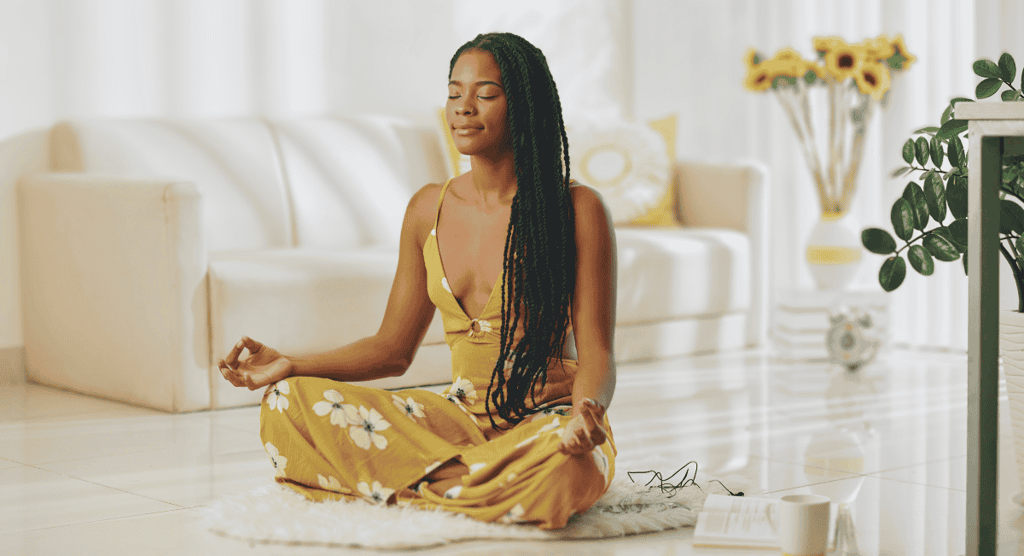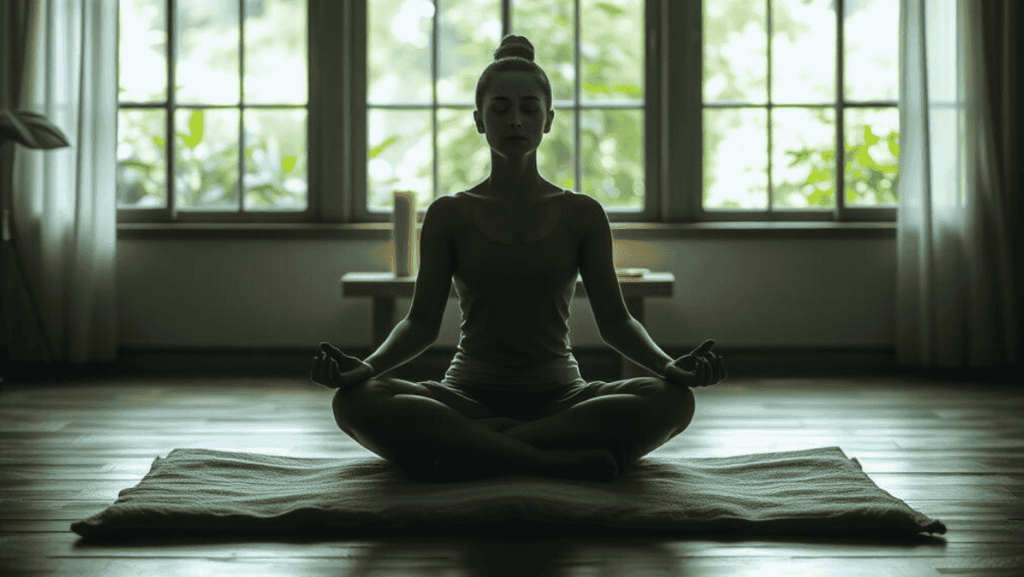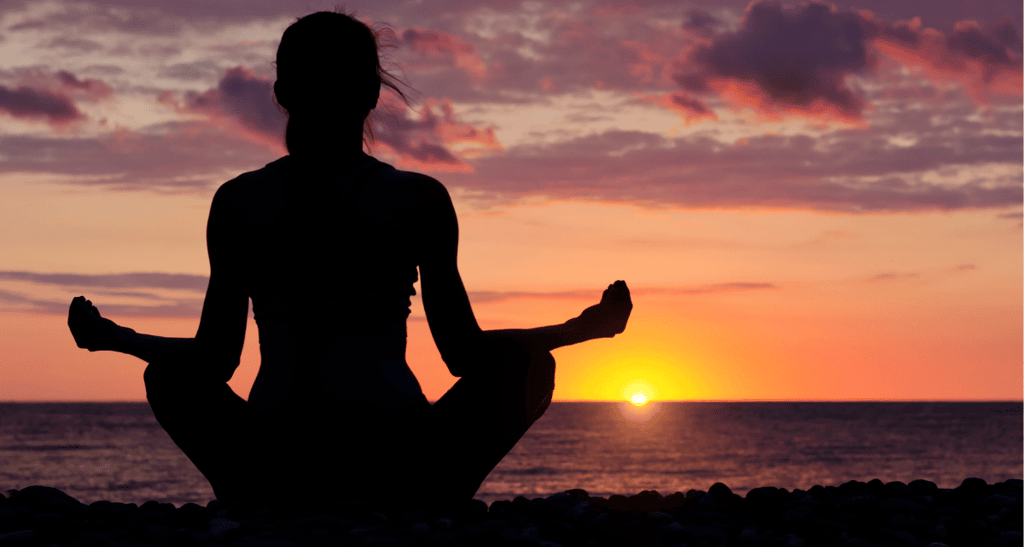Why Meditation and Mindfulness Are Key to Mental Wellness
1/27/20257 min read


Disclosure: Some of the links on our site are affiliate links, which means that if you click on these links and make a purchase, we may earn a commission at no additional cost to you.
Meditation and mindfulness
Meditation and mindfulness serve as powerful tools for mental wellness by reducing stress, improving emotional regulation, and enhancing overall psychological resilience. These ancient practices offer more than temporary relief—they provide sustainable tools for rewiring our neurological responses to stress and anxiety. Regular meditation has been scientifically proven to reduce cortisol levels, increase gray matter density in brain regions associated with self-awareness, and strengthen neural pathways that support emotional regulation.
Mindfulness, the practice of present-moment awareness without judgment, allows individuals to break free from rumination about the past and anxiety about the future, creating space to experience life as it unfolds rather than through the distorted lens of worry or regret. As mental health professionals increasingly incorporate these techniques into treatment protocols, the evidence grows clearer: dedicating even brief daily periods to quieting the mind represents not a luxury but an essential investment in long-term psychological wellbeing.
Key Takeaways
Meditation and mindfulness reduce stress and anxiety by calming the mind.
They improve emotional well-being and are recommended by health authorities like NICE for preventing recurrent depression.
Mindfulness practices enhance focus, relationships, and sleep quality.
Even brief daily sessions can build resilience and improve mental clarity.
Scientific studies show these practices change brain activity to boost emotional control.
Understanding Meditation and Mindfulness in Today's Hectic World
Life today is fast, but mindfulness offers a calm path. It helps you stay present, whether at work or home. Let’s see how these ancient tools work in today’s world.
The Ancient Roots of Modern Mindfulness Practice
Mindfulness started in ancient traditions like Buddhism, focusing on spiritual growth. It evolved into tools for stress relief and focus. Key points include:
Roots in 2,500-year-old Buddhist teachings
Modern uses: meditation apps, workplace programs
Scientific proof: improved brain structure and emotional control
“Humans form judgments in less than a second,” Princeton research shows.
How Stress Affects Your Mental Wellbeing
Stress isn't just mental—it affects your body too. Key impacts include:
37% of work-related health cases stem from stress
Long-term stress harms sleep, focus, and mood
Mindfulness techniques reduce stress hormones like cortisol
The Mindfulness Revolution in American Culture
Companies like Google and Apple now offer mindfulness training to reduce burnout. Schools teach mindful breathing to kids. This shift shows how mindfulness techniques are now tools for everyday life.
By blending ancient wisdom with modern needs, mindfulness adapts to help you thrive in a fast-paced world.
The Science-Backed Benefits of Meditation for Your Mental Health
Science has confirmed what practitioners know: meditation benefits go beyond feeling calm. Studies show regular practice changes your brain and mood. Let’s look at the facts.


Reduces stress by lowering cortisol, with 45 studies backing this claim
Improves focus and memory, boosting cognitive performance over time
Reduces anxiety by 20% in participants, per a meta-analysis of 1,300 people
Strengthens emotional resilience, cutting negative thoughts by 30% in trials
Brain scans show mindfulness alters amygdala activity, reducing fear responses
Research also reveals mindfulness meditation improves self-awareness, sleep, and even blood pressure. Programs like MBCT combine therapy with meditation to treat depression as effectively as pills. With these proven results, you can trust that dedicating time to meditate leads to measurable mental shifts. Science proves it’s not just a trend—it’s a tool for lasting change.
How Meditation and Mindfulness Transform Your Brain
Modern science shows that meditation for beginners and mindfulness exercises change your brain. They make your brain more flexible and better at focusing and feeling empathy. They also calm down areas that make us scared
Rewiring your mind with Neuroplasticity and Meditation
Regular meditation grows brain areas for memory and stress control. It also improves how well your brain focuses. This means you can handle stress better and stay calm.
"Mindfulness involves focusing attention on the present moment, inducing structural changes in the brain linked to enhanced neuroplasticity."
Emotional Regulation Through Mindfulness Techniques
Mindfulness trains your brain to think before acting. Dr. Deepak Chopra's research shows meditation boosts self-control genes and lowers stress genes. This helps you think before reacting to anger or sadness.
Reduced Anxiety and Depression: What the Research Shows
A 2015 study found mindfulness reduces negative thoughts in anxiety. Meditators show less fear and more control in their brains during stress. Just 5 minutes of mindful breathing can help with depression.
Apps like Headspace and Calm help you start. Small steps today can lead to big changes tomorrow.
Getting Started: Meditation for Beginners
Starting with meditation and mindfulness is easy. Just set aside 5–10 minutes each day. Find a quiet spot and sit comfortably. Focus on your breath without needing any special tools.
When thoughts come up, gently bring your focus back to your breath. It's like watching a leaf float by.
Try a guided meditation app like Headspace or Calm for structured sessions.
Practice a body scan: Close your eyes and mentally check in with each body part, starting from your toes upward.
Walk mindfully: Notice the sensation of each step as you move slowly, grounding yourself in the present.
“The most important moment in your meditation practice is the moment you sit down to do it.” — Sharon Salzberg
If distractions come up, remember it's okay for your mind to wander. Start with meditating a few times a week, like right after waking or before a work meeting. Apps and online videos can help you with techniques like loving-kindness meditation. Here, you repeat phrases like “May I live in safety” to build compassion.


Different Mindfulness Exercises to Fit Your Lifestyle
Mindfulness doesn't need hours of quiet. These mindfulness exercises and guided meditation can fit into your busy life. Start small and build habits that feel natural to you.
Start with guided meditation tools like Headspace, Calm, or Insight Timer. These apps offer sessions for stress, sleep, or focus. You can also try YouTube channels and podcasts for free. They guide you through body scans or breathing techniques. Try a 10-minute session during your lunch break to reset your mind.
For busy lives, micro-practices are best. Turn routine tasks into mindful moments:
Pause for 60 seconds to focus on breath while sitting at your desk
Practice “mindful commuting” by noticing sounds and sensations during your drive
Incorporate mindful stretches during work breaks to ease tension
Even brief mindfulness moments can have a big impact. Take a one-minute body scan: sit quietly, notice sensations from toes to head, releasing tension. Use transitions like waiting in line or washing dishes as chances to practice mindful awareness. Research shows these short practices reduce stress and boost focus over time.
Try different approaches until you find what fits your life. Whether through guided meditation apps or quick pauses during the day, consistency is key. Small steps add up to lasting mental clarity.
Being consistent is more important than how long you meditate. Even 12 minutes 5 days a week can improve your focus. Be gentle with yourself—every session is a step forward, not a test. Let curiosity lead you, and find what feels natural. Your first step is as simple as breathing in, breathing out.


Conclusion: Your Journey to Mental Wellness Through Mindful Living
Your mindfulness practice isn't about being perfect. It's a journey to better mental health. Studies show that regular meditation can lower anxiety and depression by helping you focus less on negative thoughts. Even short moments of mindful breathing can make you stronger.
Research also shows that mindfulness can improve sleep and lower blood pressure. It helps you feel more emotionally balanced. Over time, these benefits can lead to healthier eating and more activity. Imagine enjoying every moment, like a meal or a walk, instead of rushing through life. This change can greatly improve your well-being and help you handle stress better.
Start where you are. A five-minute body scan meditation or mindful walking can help you stay present. Combining mindfulness with therapy can help those facing bigger challenges. Every small step counts, whether it's using an app, taking a class, or simply pausing to breathe.
Remember, mindfulness isn't about avoiding stress but learning to deal with it clearly. Begin today. Your mental health is worth the care and attention it needs. Start with one mindful breath, one intentional step, and the courage to keep moving forward.
FAQ
What is meditation and mindfulness?
Meditation and mindfulness help you focus on the present moment. Meditation uses special techniques to improve your attention. Mindfulness is about staying aware every day.
How can meditation and mindfulness help with stress?
These practices help you respond better to stress. They reduce anxiety and improve emotional control. They also boost your mental health.
Are there scientific studies that support the benefits of meditation?
Yes, many studies show meditation's benefits. It changes your brain for the better. It can lower anxiety and depression, improve focus, and boost creativity.
Can anyone practice meditation, even if they're beginners?
Absolutely! Meditation is for everyone, even beginners. There are many styles, like focusing on breath or body scans. You can start without any experience.
How can I incorporate mindfulness into my busy lifestyle?
Mindfulness is easy to add to your day. Try it during your commute, meetings, or short breaks. Simple exercises like mindful breathing can fit into your busy schedule.
What resources are available for guided meditation?
There are many resources for guided meditation. Apps like Headspace and Calm are popular. YouTube and podcasts also offer a wide range of options for sleep or stress relief.
Is it common to face challenges when starting a meditation practice?
Yes, starting can be tough. Beginners often struggle with quieting their minds or finding time. Be kind to yourself and curious about the journey.
What are "mindfulness moments" and how can I use them?
"Mindfulness moments" are short practices for your day. They take 30 seconds to 2 minutes. Use daily activities or your surroundings to stay present and aware.
Follow Us
Copyright © 2025. All rights reserved.
We respect your inbox and will never spam!
Join The Community
Receive the latest wellness travel updates and tips.


